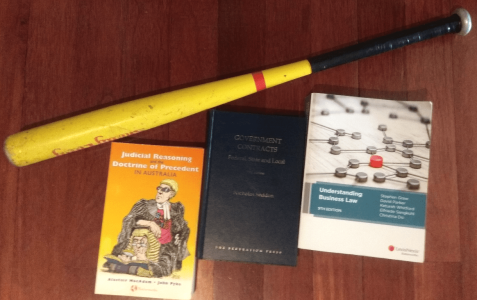
‘Just One Goat’ – J. Davies (2020)
Collaboration and Reputation
“Regard your good name as the richest jewel you can possibly be possessed of, for credit is like fire; when once you have kindled it you may easily preserve it, but if you once extinguish it, you will find it an arduous task to rekindle it again.” – Socrates (470 – 399 BC)
Why Is Reputation Important?
Effective collaborative relationships are underpinned by trust, and by extension reputation. The reputation of an organisation is a strategic asset and a significant source of corporate value as observed by Eccles et al:
“…in an economy where 70% to 80% of market value comes from hard-to-assess intangible assets such as brand equity, intellectual capital, and goodwill, organizations are especially vulnerable to anything that damages their reputations.”[1]
There are significant examples of organisations who have destroyed corporate value because they did not adequately protect their reputation. These examples include poor risk management practices such as BP with the Deepwater Horizon Disaster, fraudulent conduct such as Volkswagen’s emissions cheating practices, and highly imprudent statements about product quality such as the Chairman of a large jewellery retail chain publicly stating that the company’s products are “complete crap”.[2]
Failure to operate your company is a ‘sound and business-like manner’ and with ‘reasonable skill and care’ is not only unlawful in most jurisdictions[3] but also a sure-fire way to erode value and destroy trust. Doing what you say you are going to do, behaving ethically, and treating your customers with respect are all simple strategies to build up and maintain positive relationships. We also need to consider reputation more broadly between buyers and suppliers, especially with strategic suppliers and customers.
The current global pandemic is generating extreme volatility and uncertainty in business relationships. The temptation to retreat into silos with a ‘dog eat dog’ approach may yield very short-term benefits; however, smart companies will play the long game and focus on how the business will operate after the crisis is ended. In other words, these companies will look to preserve or even enhance their reputations
Strategies for Preserving Your Reputation in a Crisis
In a crisis, an organisation may be legally frustrated from delivering what they promised. This can apply to organisations involved from both the buy side and sell side. A black letter law approach would push businesses towards efficient breach of the contract or litigation to resolve the issue (often through legal technicalities) but as we know, such approaches destroy trust and annihilate opportunities for parties to work effectively with each other in the future. Organisations therefore need to explore options for win-win outcomes through the following:
Transparency. Be honest and do not surprise your suppliers or customers. Early and frank disclosure will more likely preserve trust and allow for joint, mutually agreed solutions.
Demonstrate Leadership. Be a role-model to your teams, customers, and suppliers. Be proactive, be courageous, and do not let issues fester. Problems rarely go away by themselves.
Maintain Flexibility. Two millennia ago, the Roman statesman, Publilius Syrus stated that, ‘it is a poor plan that admits to no modification’. This tenet is especially relevant now. Organisations need to accept that existing Business Cases, Corporate Plans, Profit Forecasts, and Programme Charters are likely to be superseded by events. Stubborn organisations that do not adapt their strategies and plans will likely fail. Successful organisations, that work collaboratively with buyers and suppliers to promote flexibility and agility, will more likely succeed.
Negotiate to Create Value. Negotiation does not have to be a zero sum game. Adopt a positive approach to negotiation that explores opportunities for both parties and the creation of value.
Fix the Problem and not the Blame. When the proverbial hits the fan, there is an overwhelming temptation to start pointing fingers. We need to resist this temptation and focus our energy on fixing the problem.
Adopting the above strategies will not guarantee preservation of goodwill but will be far more likely to avoid losing a cherished reputation. Organisations may also seek a crisis to enhance their reputation and prove that they can work collaboratively in both good and bad times.
Summary
When a crisis strikes, we naturally focus on short term survival. This is absolutely necessary where cash flow and solvency is at risk and other extreme risks or issues place business viability in jeopardy. Like Maslow’s hierarchy of needs,[4] we should not ignore these critical factors but at the same time we also need to be future focused and explore how the organisation will look and work at the end of the crisis. Short-term survival does not have to be at the expense of long-term relationship building. Organisations now have a unique opportunity to demonstrate their affinity to collaboration in good times and bad. Playing the long-game, from a collaboration perspective, should be a strategic priority.
[1] Robert G. Eccles , Scott C. Newquist and Roland Schatz “Reputation and Its Risks” Harvard Business Review February 2007.
[2] Gerald Ratner, After Dinner Speech to UK Institute of Directors (Apr 1991).
[3] Companies Act 2006 (UK) s174; Delaware General Corporation Law Delaware s145; Canada Business Corporations Act (1975) s122; Corporations Act 2001 (Cth) s180.
[4] Maslow, A. H. (1943). A theory of human motivation. Psychological review,50(4), 370.

